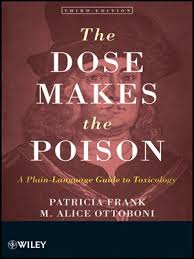
The pharmaceutical industry is an industry involved in medicine that discovers, develops, produces, and markets pharmaceutical goods for use as drugs that function by being administered to patients using such medications with the goal of curing or preventing disease. Pharmaceutical companies may deal in "generic" medications and medical devices without the involvement of intellectual property, in "brand" materials is specifically tied to a given company's history, or in both within different contexts. The industry's has various subdivisions are all subject to a variety of laws and regulations that govern entire financial processes including the patenting, efficacy testing, safety evaluation, and marketing of these drugs. The global pharmaceuticals market produced treatments worth $1,228.45 billion in 2020, in total, and this showed a compound annual growth rate (CAGR) of 1.8% given the results of recent events.

David HealyFRCPsych, a professor of psychiatry at Bangor University in the United Kingdom, is a psychiatrist, psychopharmacologist, scientist and author. His main areas of research are the contribution of antidepressants to suicide, conflict of interest between pharmaceutical companies and academic medicine, and the history of pharmacology. Healy has written more than 150 peer-reviewed articles, 200 other articles, and 20 books, including The Antidepressant Era, The Creation of Psychopharmacology, The Psychopharmacologists Volumes 1–3, Let Them Eat Prozac and Mania: A Short History of Bipolar Disorder.

Alosetron, sold under the brand name Lotronex among others, is a 5-HT3 antagonist used for the management of severe diarrhea-predominant irritable bowel syndrome (IBS) in females only.
Medicalization is the process by which human conditions and problems come to be defined and treated as medical conditions, and thus become the subject of medical study, diagnosis, prevention, or treatment. Medicalization can be driven by new evidence or hypotheses about conditions; by changing social attitudes or economic considerations; or by the development of new medications or treatments.

The feminist school of criminology is a school of criminology developed in the late 1960s and into the 1970s as a reaction to the general disregard and discrimination of women in the traditional study of crime. It is the view of the feminist school of criminology that a majority of criminological theories were developed through studies on male subjects and focused on male criminality, and that criminologists often would "add women and stir" rather than develop separate theories on female criminality.
Peter Christian Gøtzsche is a Danish physician, medical researcher, and former leader of the Nordic Cochrane Center at Rigshospitalet in Copenhagen, Denmark. He is a co-founder of the Cochrane Collaboration and has written numerous reviews for the organization. His membership in Cochrane was terminated by its Governing Board of Trustees on 25 September 2018. During the COVID-19 pandemic, Gøtzsche was criticised for spreading disinformation about COVID-19 vaccines.
John Braithwaite is a Distinguished Professor at the Australian National University (ANU). Braithwaite is the recipient of a number of international awards and prizes for his work, including an honorary doctorate at KU Leuven (2008), the University of Louisville Grawemeyer Award with Peter Drahos for Ideas Improving World Order (2004), and the Prix Emile Durkheim, International Society of Criminology, for lifetime contributions to criminology (2005). In 2024 he was awarded the Balzan Prize for "Restorative Justice".
Funding bias, also known as sponsorship bias, funding outcome bias, funding publication bias, and funding effect, refers to the tendency of a scientific study to support the interests of the study's financial sponsor. This phenomenon is recognized sufficiently that researchers undertake studies to examine bias in past published studies. Funding bias has been associated, in particular, with research into chemical toxicity, tobacco, and pharmaceutical drugs. It is an instance of experimenter's bias.

Criminology is the interdisciplinary study of crime and deviant behaviour. Criminology is a multidisciplinary field in both the behavioural and social sciences, which draws primarily upon the research of sociologists, political scientists, economists, legal sociologists, psychologists, philosophers, psychiatrists, social workers, biologists, social anthropologists, scholars of law and jurisprudence, as well as the processes that define administration of justice and the criminal justice system.

Selling Sickness: How the World's Biggest Pharmaceutical Companies are Turning us All into Patients is a 2005 book by Ray Moynihan and Alan Cassels about unnecessary health care.
Green criminology is a branch of criminology that involves the study of harms and crimes against the environment broadly conceived, including the study of environmental law and policy, the study of corporate crimes against the environment, and environmental justice from a criminological perspective.

The Dose That Makes the Poison: A Plain Language Guide to Toxicology is a book originally written by M. Alice Ottoboni and published in 1984 by Vincente Books to help laypeople understand what she considered to be an unfounded fear of synthetic chemicals. A second edition was published in 1991 and a third, revised by Patricia Frank, was released in 2011.

The medical–industrial complex (MIC) refers to a network of interactions between pharmaceutical corporations, health care personnel, and medical conglomerates to supply health care-related products and services for a profit. The term is derived from the idea of the military–industrial complex.
Positive criminology is based on the perspective that integration and positive life influences that help individuals develop personally and socially will lead to a reduced risk of criminal behavior and better recovery of offenders. Integration works in three levels: inter-personal, intra-personal and spiritual. Positive influences include participation in recovery programs, such as those for substance use disorders. Factors that can make growth difficult include a long-standing pattern of criminal activity, serious adverse life events, and chronic mental health illness.
Joseph Gavin Collier is a British retired clinical pharmacologist and emeritus professor of medicines policy at St George's Hospital and Medical School in London, whose early research included establishing the effect of aspirin on human prostaglandins and looking at the role of nitric oxide and angiotensin converting enzyme in controlling blood vessel tone and blood pressure. Later, in his national policy work, he helped change the way drugs are priced and bought by the NHS, and ensured that members of governmental advisory committees published their conflicts of interest.

Conflicts of interest (COIs) often arise in academic publishing. Such conflicts may cause wrongdoing and make it more likely. Ethical standards in academic publishing exist to avoid and deal with conflicts of interest, and the field continues to develop new standards. Standards vary between journals and are unevenly applied. According to the International Committee of Medical Journal Editors, "[a]uthors have a responsibility to evaluate the integrity, history, practices and reputation of the journals to which they submit manuscripts".

Public criminology is an approach to criminology that disseminates criminological research beyond academia to broader audiences, such as criminal justice practitioners and the general public. Public criminology is closely tied with “public sociology”, and draws on a long line of intellectuals engaging in public interventions related to crime and justice. Some forms of public criminology are conducted through methods such as classroom education, academic conferences, public lectures, “news-making criminology”, government hearings, newspapers, radio and television broadcasting and press releases. Advocates of public criminology argue that the energies of criminologists should be directed towards "conducting and disseminating research on crime, law, and deviance in dialogue with affected communities." Public criminologists focus on reshaping the image of the criminal and work with communities to find answers to pressing questions. Proponents of public criminology see it as potentially narrowing "the yawning gap between public perceptions and the best available scientific evidence on issues of public concern", a problem they see as especially pertinent to matters of crime and punishment.

Marshall Barron Clinard was an American sociologist who specialized in criminology. Criminological studies spanned across his entire career, from an examination of the Black Market during World War II to much more general treatments of white collar crime. His 1957 textbook Sociology of Deviant Behavior is now in its 15th edition. In addition to studies within the United States, Clinard did research in Sweden, India, Uganda and Switzerland: supported, respectively, by the Fulbright Program, the Ford Foundation, the Rockefeller Foundation and the U. S. National Science Foundation.
Robert Miles, also known as Bob Miles, is a British sociologist. Miles has worked as a professor of sociology at University of Glasgow and University of North Carolina at Chapel Hill.

Gregg Barak is an American criminologist, academic, and author. He is an emeritus professor of criminology and criminal justice at Eastern Michigan University, a former visiting distinguished professor in the College of Justice & Safety at Eastern Kentucky University, and a 2017 Fulbright Scholar in residence at the School of Law, Pontificia Universidade Catholica, Porto Alegre, Brazil. He is most known for his research in the fields of criminology and criminal justice.










